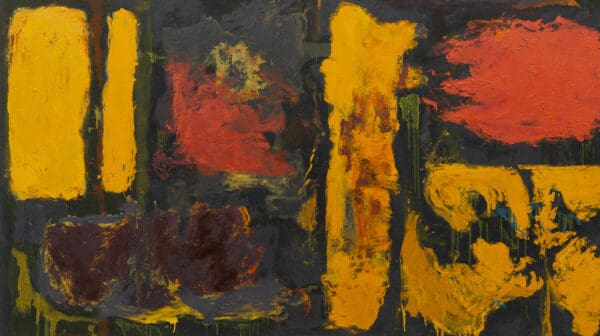
Making Space at the Table
NAP Contemporary’s group show, The Elephant Table, platforms six artists and voices—creating chaos, connection and conversation.
In the modern fibre-optic world of today, every artist is busy professionalising their practice, building a personal brand across multiple media platforms while synergising their opportunities. So it takes a lot to be an artist beyond just making work, and as much as people try, it’s equally hard to be a failure. So the question to consider is this: is it possible to not make it as an artist?
As we all already know, talent is optional when it comes to contemporary art. Skills are optional too, and everything from drawing and painting to industrial scale fabrication can be farmed out to the experts. Inspiration is also really only a matter of picking some ‘influences’ from art history and recreating as closely as possible some of your chosen artists’ more obscure early work, or if you’re particularly bold, you can appropriate another artist’s entire oeuvre.
No one is really interested, and it’s embarrassing when artists go o on their own doing their own thing, and still expect to be celebrated for their originality.
The flip side of this is that to be influenced and inspired is fine, and to some extent to steal from other artists is all part of the game, but some artists and their work is considered sacred, and thus to steal from them is to run the risk of being referred to the United Nations Humans Rights Commission. So if you really want to fail, use the motifs, methods and subjects of artists who have been historically marginalised, mistreated and abused.
This is all obviously unjust, but the quickest way to truly fail is to complain about it. Social media is awash with aggrieved artists whose damnation of their fellow artists and their work is fuelled almost entirely by the belief that they have been unfairly overlooked. The louder an artist complains, the less chance they have of ever being admitted to the inner sanctum of the art world, that plush lounge just beyond the velvet rope where cocktails and art awards are being handed out freely, and where the only cost of admission is a complete lack of shame.
No, the more effective option is to have all those things and not do anything with it, to just coast along on the promise of your early career, before fading out in your late 30s, getting dropped by your gallery, whereupon no one in the fickle media will be interested in your latest etchings. The fact that you once had a career survey show in one of the smaller spaces in a state gallery, or that you self-funded the publication of a monograph, or you have a short video work in the collection of the National Gallery of Australia, will count for little.
Mediocrity is common, that’s why its synonyms are ‘ordinariness, commonplaceness and passableness’ – being an artist who is just ok, not great, not bad, just kind of going along fine, is the benchmark for the everyday practitioner. While some artists of apparently negligible talent are winning high profile prizes, travelling to international biennales, and filling up their Facebook pages with their utter fabulousness, you’re picking up the kids from after-school sport, or trying to identify a Nashi pear from a regular pear at Woollies.
Perhaps, then, you haven’t set your bar low enough. There is grand nobility in the artist who never sold any work, or even better, never made any to begin with.
The mere potential to be great is a consolation for never having tried, and if you tried and failed, you’ll have to live with the very real possibility that everyone is laughing at you, sometimes openly.
The answer to the question about how to fail is therefore counterintuitive: for an artist to truly blow it, to not make it in the most meaningful way, is to aim for the heavens and hope for the best. Clever people and procrastinators alike will know that to pretend to be aiming for greatness is impossible, and so a kind of unembarrassed out-of-body faith in the will to fail will lead to one of two outcomes: either you will crash and burn as you’d always secretly hoped, or you will sail above the social media naysayers to a kind of career nirvana. It can’t hurt.